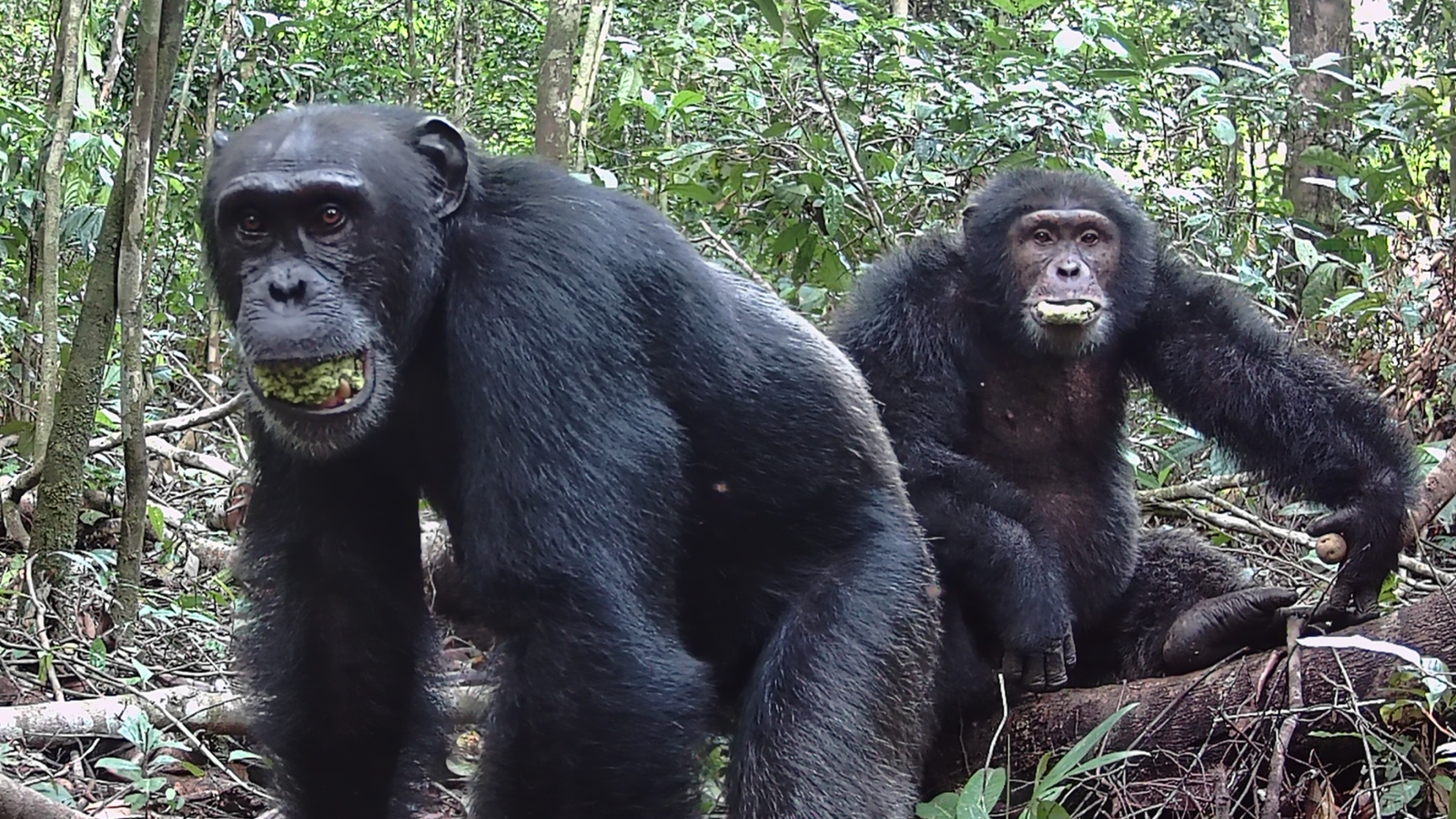Chimps eat fruit full of alcohol, but no, they don't get drunk
Chimps' ability to metabolize fermented fruit could explain our own predilection for alcohol.

Get the world’s most fascinating discoveries delivered straight to your inbox.
You are now subscribed
Your newsletter sign-up was successful
Want to add more newsletters?

Delivered Daily
Daily Newsletter
Sign up for the latest discoveries, groundbreaking research and fascinating breakthroughs that impact you and the wider world direct to your inbox.

Once a week
Life's Little Mysteries
Feed your curiosity with an exclusive mystery every week, solved with science and delivered direct to your inbox before it's seen anywhere else.

Once a week
How It Works
Sign up to our free science & technology newsletter for your weekly fix of fascinating articles, quick quizzes, amazing images, and more

Delivered daily
Space.com Newsletter
Breaking space news, the latest updates on rocket launches, skywatching events and more!

Once a month
Watch This Space
Sign up to our monthly entertainment newsletter to keep up with all our coverage of the latest sci-fi and space movies, tv shows, games and books.

Once a week
Night Sky This Week
Discover this week's must-see night sky events, moon phases, and stunning astrophotos. Sign up for our skywatching newsletter and explore the universe with us!
Join the club
Get full access to premium articles, exclusive features and a growing list of member rewards.
Chimpanzees could be consuming the equivalent of a beer and half a day from eating alcoholic fruits, according to the first estimates of wild chimp alcohol intake.
By virtue of their fruit-filled diets alongside natural fermentation, chimps (Pan troglodytes) in Uganda and the Ivory Coast probably eat around 0.5 ounces (14 grams) of ethanol a day.
That doesn't mean the chimps are getting drunk. But it could mean that our predilection for alcohol comes from exposure to ethanol from fermented fruit in ancestral diets, according to research published Sept. 17 in the journal Science Advances.
"They're definitely not getting drunk," study co-author Aleksey Maro, a primatologist at University of California Berkeley (UC Berkeley), told Live Science. "If you had two drinks split through the whole day, you wouldn't feel much either."
The idea that humans have a taste for alcohol because it first appeared naturally in our diets is called the "drunken monkey hypothesis," and was proposed by study co-author Robert Dudley, a professor of integrative biology at UC Berkeley. Dudley's hypothesis postulates that there was a period of primate evolution during which our early ancestors couldn’t metabolize fermented fruits, and so were missing out on high calorie meals.
To tap into this nutritious resource, primates evolved to be able to hold their liquor by being able to break down ethanol.
However, until now scientists have only directly observed chimps eating fruit known to contain ethanol once, reporting chimps in Guinea-Bissau eating and sharing naturally-occurring fermented African breadfruit in 2022.
Get the world’s most fascinating discoveries delivered straight to your inbox.
"I'm as skeptical as everyone else about the drunken monkey hypothesis," Maro said, "so I've taken care to do my own sleuthing."
To figure out how regularly chimpanzees could be consuming ethanol rich fruits, Maro and his team followed two groups of chimps: The Ngogo chimpanzees in Uganda and the Taï chimpanzees in Côte d'Ivoire. They observed the chimps for three periods lasting several months between 2017 and 2021.
The researchers took samples of freshly fallen fruit whenever they encountered them eating. From this, they retrieved 254 ripe fruit samples from 15 fruit species in Ngogo and 245 samples from six species in Taï.
To estimate the alcohol content in the samples, the team either analyzed the alcohol vapor found inside the fruit or used a chemical reagent that turned yellow on contact with ethanol.
They found that the Ngogo chimps ate fruit with an average ethanol concentration of 0.32%, meaning that there was 1.1 ounces (32 grams) of ethanol in every 3.5 ounces (100 grams) of the total weight. The fruit eaten by the Taï chimps had a remarkably similar average ethanol concentration at 0.31%.
Maro and his team then used pre-existing data on chimp diets and body weights to estimate the chimpanzees' daily ethanol intake across the two populations. They found that both male and female chimps consume approximately 0.5 ounces ethanol per day, which is around 2.5 standard drinks when adjusted for their smaller body size.
Matthew Carrigan, a molecular biologist at the College of Central Florida who was not involved in the research, said that while the results aren't necessarily surprising, they are exciting because it's moving forward an "important question about human ethanol addiction and evolution."
However, Carrigan pointed out that "there's a very wide range" in the error bars, meaning that the chimps could be eating as little as 0.14 ounces (4 grams) of ethanol per day, or as much as 0.85 ounces (24 grams) — the difference between less than one drink or four.
Maro also acknowledged that the research samples could have been fruits the chimps refused to eat. The next step is to investigate if the chimps are opting to avoid or seek out individual fruits based on their degree of fermentation, Carrigan said.
Ultimately, humans and chimpanzees "evolved to get calories without getting drunk," Carrigan said. "Otherwise, if we evolved to get drunk, then we would not evolve to metabolize the ethanol faster."

Sophie is a U.K.-based staff writer at Live Science. She covers a wide range of topics, having previously reported on research spanning from bonobo communication to the first water in the universe. Her work has also appeared in outlets including New Scientist, The Observer and BBC Wildlife, and she was shortlisted for the Association of British Science Writers' 2025 "Newcomer of the Year" award for her freelance work at New Scientist. Before becoming a science journalist, she completed a doctorate in evolutionary anthropology from the University of Oxford, where she spent four years looking at why some chimps are better at using tools than others.
You must confirm your public display name before commenting
Please logout and then login again, you will then be prompted to enter your display name.
 Live Science Plus
Live Science Plus










